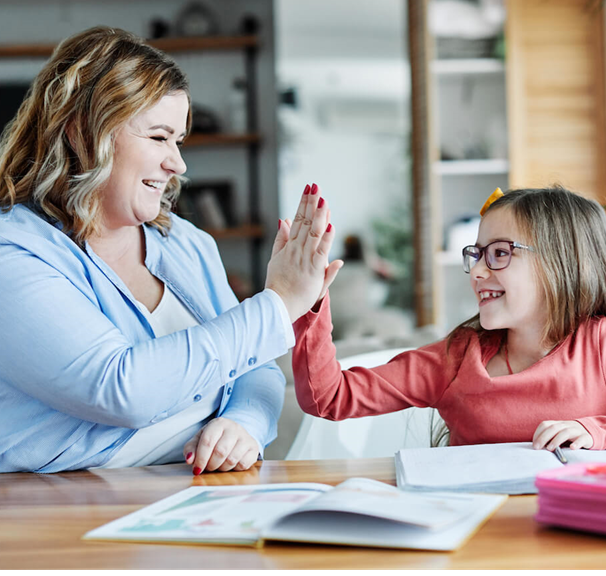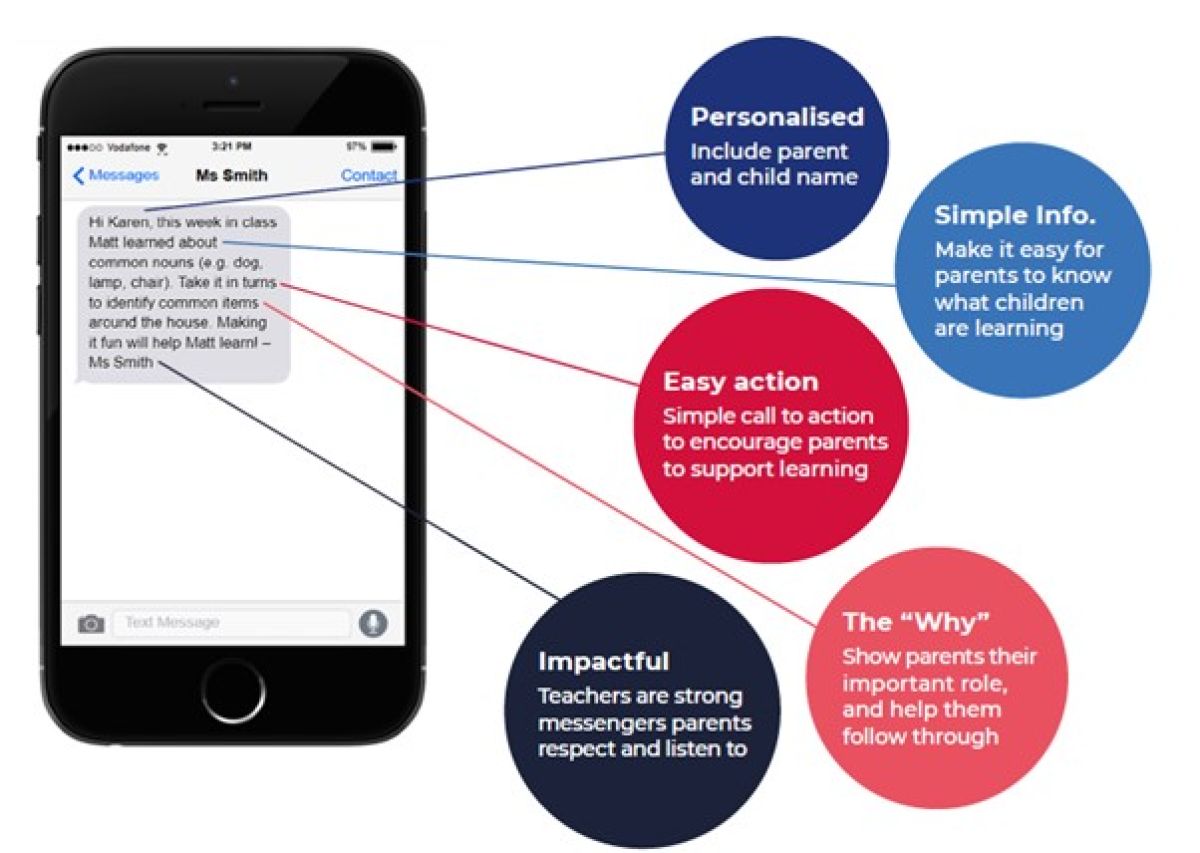Messages from teachers help parents and carers connect with schools
Messages designed using behavioural science can get parents and carers involved with their children’s education. It’s about getting the content right and sending the messages at the right time.
Key information
- The challenge: Parents and carers want to understand what their children are learning and help them but lack time and information. Schools want to build engagement with parents and carers to improve learning outcomes, school attendance and build community.
- What we did: Together with the Department of Education we developed a weekly text messaging program for schools to send to parents and carers. These messages were based in behavioural science, with easy actions, simple information, and encouragement. Schools customised these messages for their classes. Messages were sent weekly during Term 2, 2021.
- What we learned: Seven simple messages have the power to change how parents and carers engage with their child’s education. We found parents and carers had 5 percent higher engagement at schools that sent the messages compared to those at schools that did not send messages. This increase in engagement is like bringing the engagement of parents and carers of Year 5/6 children back up to the level of parents and carers of kindergarten children, who are generally much more engaged.
The challenge

Parents and carers want to help their children do well at school but they may not know how to do this. Parents and carers face barriers like a lack of time and information. Evidence from studies in Australia and overseas shows that when parents and carers are engaged, children have increased attendance and better learning outcomes.
Access learning guidance resources for parents.
When we spoke to parents and carers in NSW, they told us:
- they want to help their children learn, but do not know how best to help.
- they think their children can easily catch up when they miss school.
- some do not feel connected to the school community, and do not engage with social media or newsletters.
- teachers are the most important and impactful messengers.
What we did

In Term 2, 2021, schools sent seven personalised, weekly SMS to parents and carers. These messages were prepared by teachers and school leaders using behaviourally designed message templates. The templates were developed by the Behavioural Insights Unit and the Department of Education.
Each message gave parents and carers simple information about what their child learned that week. They also had a clear action they could take to support learning and provided encouragement to help them follow through.
For example:
“Hi Karen, this week in class Matt learned about common nouns (e.g. dog, lamp, chair). Take it in turns to identify common items around the house. Making it fun will help Matt learn! – Ms Smith”
We tested the impact of our SMS on NSW primary school students using a randomised controlled trial. We had 195 NSW primary schools, with 26005 students, express interest in being part of the trial.
We also surveyed parents, carers, and teachers. This survey measured how engaged parents and carers felt with their child’s school, what their child was learning, and their attitudes towards school attendance.
What we learned
Parents and carers had 5 percent higher engagement at schools that sent the messages compared to those at schools that did not send messages.
Parents and carers who got the messages reported they were more likely to help their kids with schoolwork, felt better informed and felt more welcome at school.
More than two thirds, 73 percent, of parents and carers who got the messages reported talking with their child about what they learned in class, and more than half, 53 percent, reported doing short learning activities with their kids at home.
Parents and carers said they really appreciated having easy ways to connect with their child and support their learning:
“I have loved this system. It has made me feel more a part of learning with my son and also has allowed me to reinforce his learning at home.” –Parent involved in the trial
Parents and carers who speak a language other than English at home, those with a year 12 or lower education, and those at more disadvantaged schools were especially positive about the messages.
Parents and carers were more likely to think attendance matters as their engagement increased. This positive attitude did not lead to an increased rate of attendance in the seven-week period of this test but suggests that over time the SMS may lead to increased attendance.
These messages work because they are:
- An easy way for parents and carers to support learning – they get the information they need and a clear action they can take to support what their child is learning in class.
- Timely – messages are sent weekly at a time of day when most parents and carers will soon be with their children.
- Able to reach parents and carers – SMS is a cut-through channel to reach more parents and carers.
Next steps
Based on the success of this trial we are working with our partners in the Department of Education to build a new suite of resources for schools that might like to implement this.
These resources will enable schools to use this messaging to transform how their parents and carers connect with learning.
How can I apply this
These results show that SMS can be a valuable tool to change how you connect with customers. By using personalised, helpful content you can build engagement and build a relationship with customers.
If you want to apply this in your work, we recommend you:
- Know your purpose – know what you want your customers to do after getting your message
- Build a call to action – clearly communicate your ask in the SMS to your customers
- Make it easy – your message should contain information that makes it easy for your customers to respond to that call to action.
- Send at the right time – consider the time and day of the week when your customers are most likely to take action immediately.
Want help applying behavioural insights to build engagement with your customers?
Book a clinic with the BIU today.